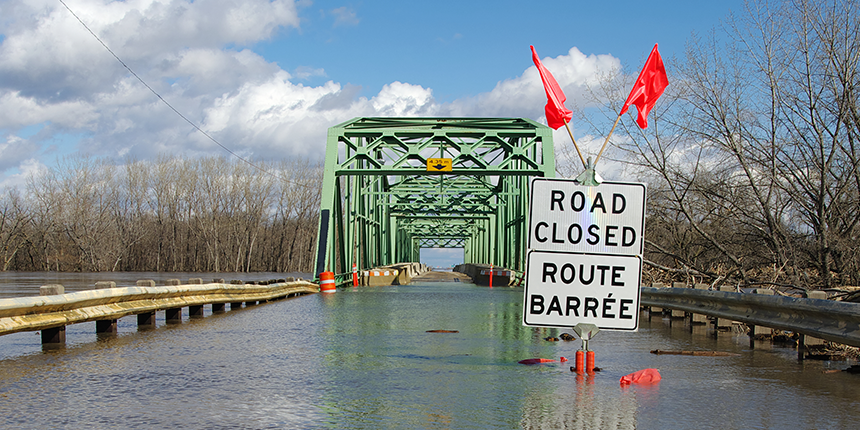

In July 2022, Engineers Canada submitted comments to Environment and Climate Change Canada discussion paper on developing a National Adaptation Strategy.
Engineering is on the front line in the provision of infrastructure to society, and engineers therefore have a significant role to play in addressing climate change issues and incorporating them into engineering practice. The engineering profession has been engaged in this issue for over 15 years with a focus on infrastructure climate vulnerability and risk assessment, as well as proposing adaptation policies, strategies, and professional practices to improve resilience. Engineers are well-positioned to offer their expertise on measurable and achievable short-term actions to support long-term transformational goals and medium-term objectives that the federal government is seeking to achieve as a result of their consultations on the development of a National Adaptation Strategy.
From this perspective, Engineers Canada made a number of recommendations in their submission for the government to consider in developing a National Adaptation Strategy, including:
- Continuing to invest in nature-based solutions to address climate change. Nature-based solutions is a design approach that leverages the positive benefit of natural systems in conjunction with traditional engineering. It encompasses a wide range of approaches to address societal problems, including the restoration of habitats, water resource management, disaster risk reduction, and green infrastructure.
- Using Canada’s national climate data framework, and expanding climate parameters beyond temperature, rainfall, and precipitation. Including additional climate parameters (such as wind speed and direction, fog, snow accumulation, duration, and intensity, freezing rain and hail, freeze-thaw cycles, and long duration rainfall/atmospheric river tracking) will build confidence in climate projections, support accurate risk assessments in built environments, and will provide engineers with defensible and authoritative climate data when designing and constructing infrastructure across Canada.
- Conduct regional climate assessments for northern and remote communities. Northern and remote communities are disproportionately affected by Canada’s changing climate. Regional climate assessments would allow professional engineers and other practitioners to factor in future climate projections into their design, building, and maintenance of infrastructure in these northern and remote communities that are most susceptible to the effects of climate change.
- Use the expertise of the engineering profession. Climate action must draw on existing knowledge and consider new insights as they become available. The inclusion of the unbiased expertise of the engineering profession in dealing with disaster resilience and security is a key element to ensure that decision makers have the best available knowledge that will keep research efforts aligned with practitioners’ needs.
Read Engineers Canada’s full submission to Environment and Climate Change Canada on the Engineers Canada website.


